The Dark Energy Survey
The Nobel Prize in Physics 2011 was awarded to three astronomers "for the discovery of the accelerating expansion of the Universe through observations of distant supernovae". More generally, observations over the past decade strongly favour a ‘concordance’ model in which the Universe is flat and contains approximately 5% ordinary atomic matter, 25% Cold Dark Matter and 70% Dark Energy. The Dark Energy paradigm and its extensions pose fundamental questions about the origins of the Universe: is Dark Energy an actual ingredient, or should Einstein's gravity theory be modified?
The international Dark Energy Survey (DES) is designed to probe the origin of the accelerating universe and help uncover the nature of dark energy by measuring the 14-billion-year history of cosmic expansion with high precision, mapping 300 million galaxies over 1/8 of the sky. DES will use four complementary techniques in a single survey for probing dark energy: Galaxy clustering, weak gravitational lensing, supernovae and galaxy cluster counts. The survey science requirements have driven the construction of the Dark Energy Camera, DECam, an extremely sensitive 570-megapixel wide field camera and the most powerful survey instrument of its kind, which has been mounted on the Blanco 4-m telescope at the Cerro Tololo Inter-American Observatory (CTIO) in Chile.
The survey has brought together over 300 scientists from six countries (the US, the UK, Spain, Brazil, Germany and Switzerland). DES:UK members are based in UCL, Portsmouth, Cambridge, Nottingham, Sussex, Edinburgh and Manchester. UCL astronomers are playing leading roles in DES.
DES@UCL
Ofer Lahav is co-chairing the DES Science Committee and the DES:UK consortium. Filipe Abdalla is Co-Lead of the DES Spectroscopic Task Force. Hiranya Peiris is leading analyses of large scale structure and cosmic microwave background. In addition, over a dozen UCL post-doctoral researchers and PhD students are working on the project.
The UCL Astrophysics Instrumentation group has made a significant contribution to DES through the construction of the optical corrector for the survey camera, led by Peter Doel and David Brooks. The corrector was shipped to Chile in December 2011 and installation was completed in August 2012. 'First-light' for DECam was in September 2012 with the Dark Energy Survey formally starting in August 2013. In February 2015, the second year of DES observations were successfully finalised. The survey will be completed in 2018.
Grants/projects directly associated with DES work at UCL, include:
- May 2012 - EUR 2.4M ERC Advanced grant: Testing the Dark Energy Paradigm and Measuring Neutrino Mass with the Dark Energy Survey (TESTDE) (PI: Lahav)
- April 2012 - £1.8M UCL Astrophysics STFC Consolidated Grant with 19 CoI’s (PI: Lahav)
- Feb 2012 - £140k STFC grant: DESpec: Spectroscopic upgrade of the Dark Energy Survey (PI: Lahav). A proposed spectroscopic follow-up to DES, the Dark Energy Spectrometer will be a new multi-fibre instrument on the Blanco Telescope, in operation from 2017 once the DES imaging survey is complete.
- Nov 2006 - £1.76M STFC grant: A wide-field corrector for the Dark Energy Survey (PI: Lahav)
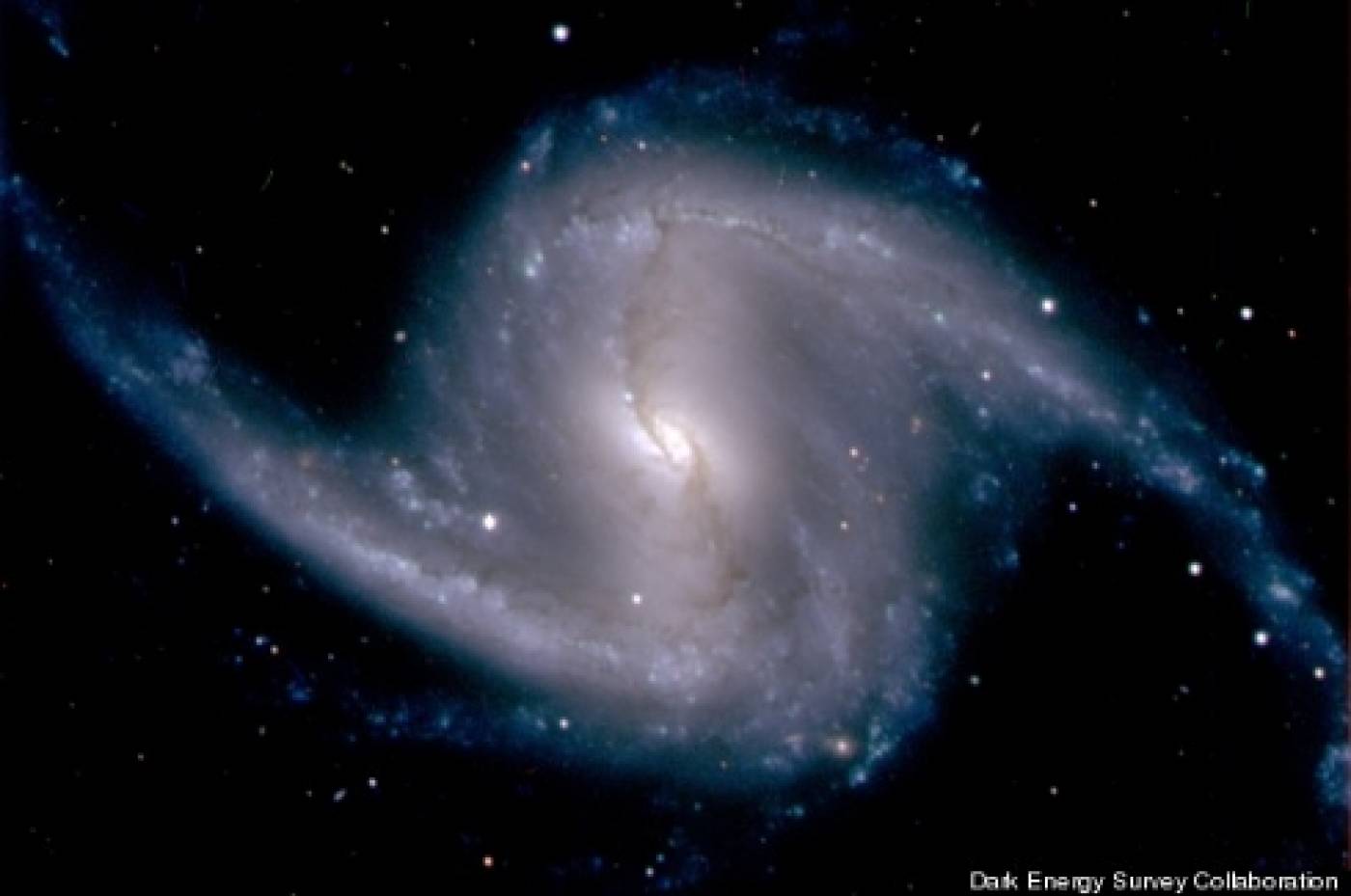
DES "First Light": Zoomed-in image from the Dark Energy Camera of the barred spiral galaxy NGC 1365, in the Fornax cluster of galaxies, which lies about 60 million light years from Earth. Credit: The DES Collaboration
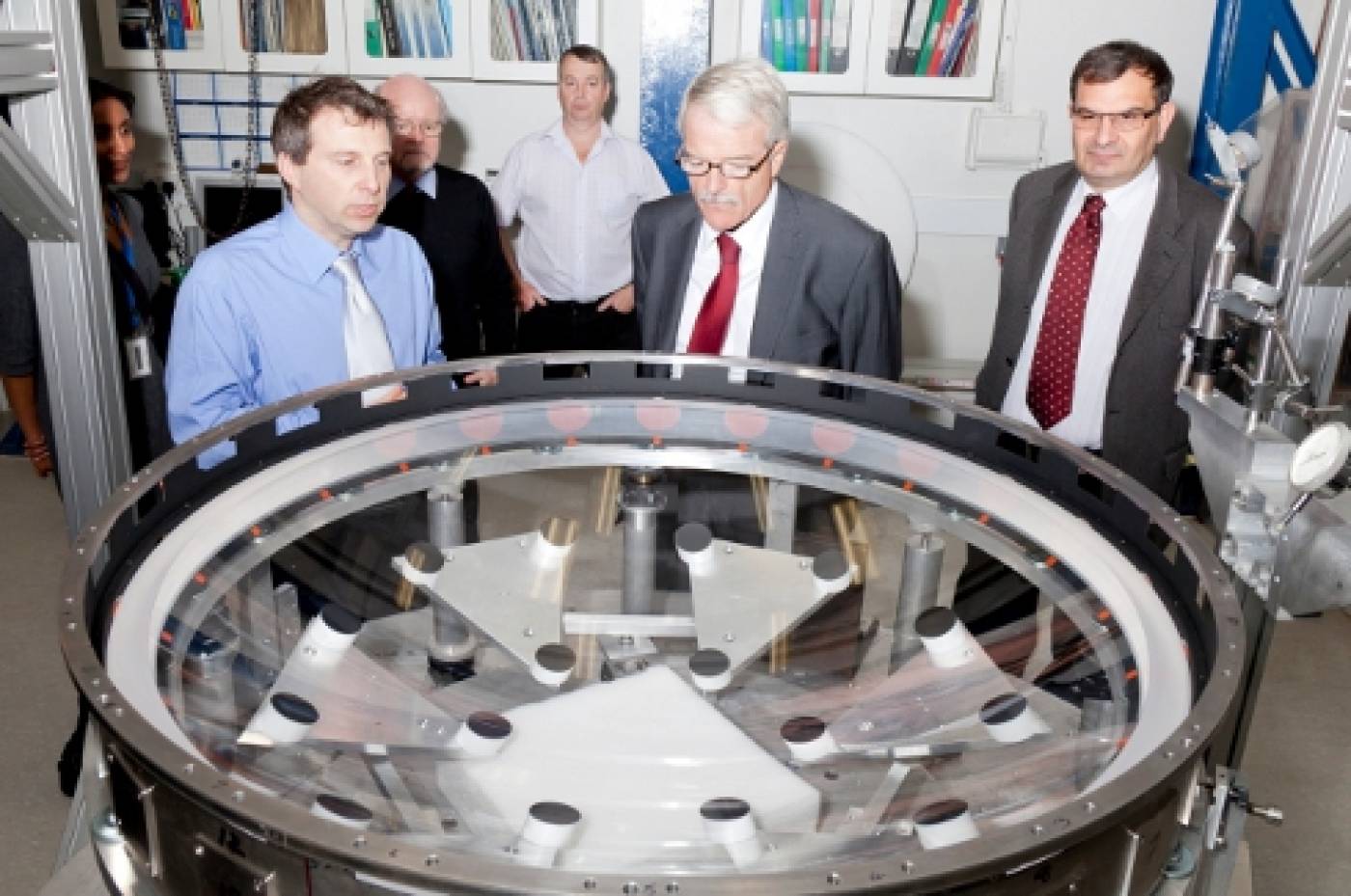
DES optical corrector overseen by (L-R): DES Optical Scientist, Dr. Peter Doel; UCL's Provost, Malcolm Grant; and DES:UK Chair, Prof. Ofer Lahav
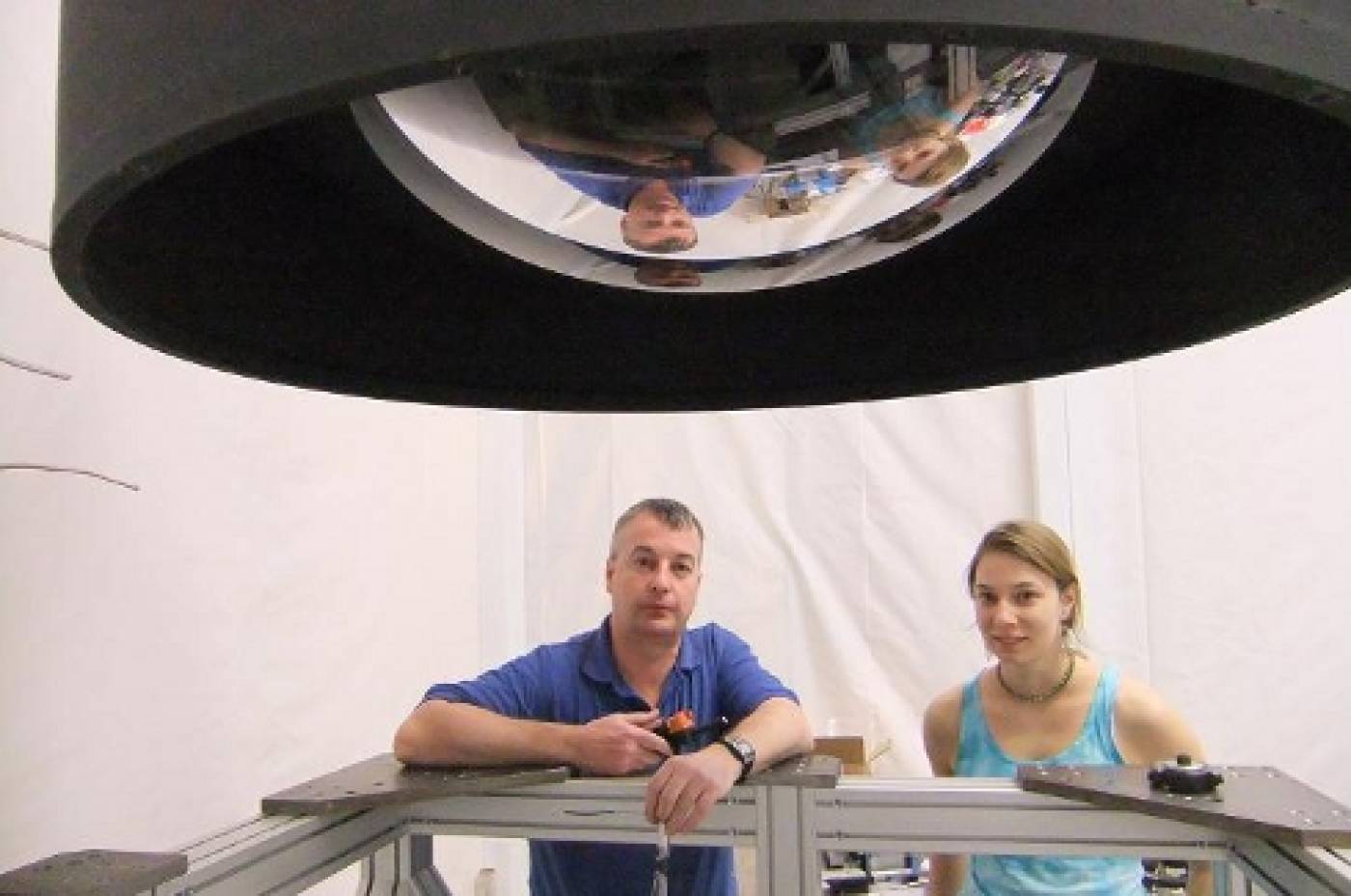
Instrument technician David Brooks and then PhD student Michelle Antonik
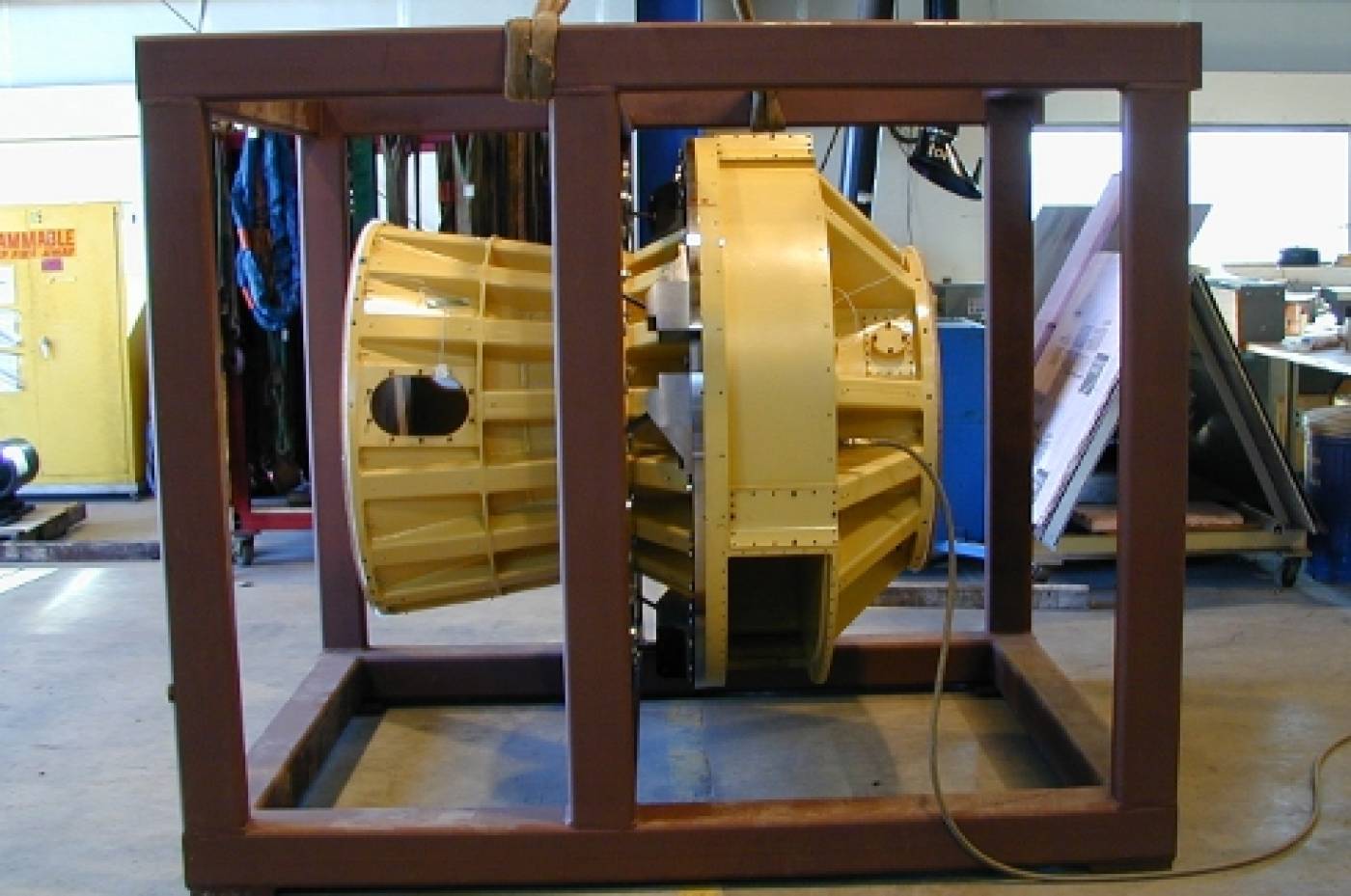
Optical corrector housed for shipping to Chile
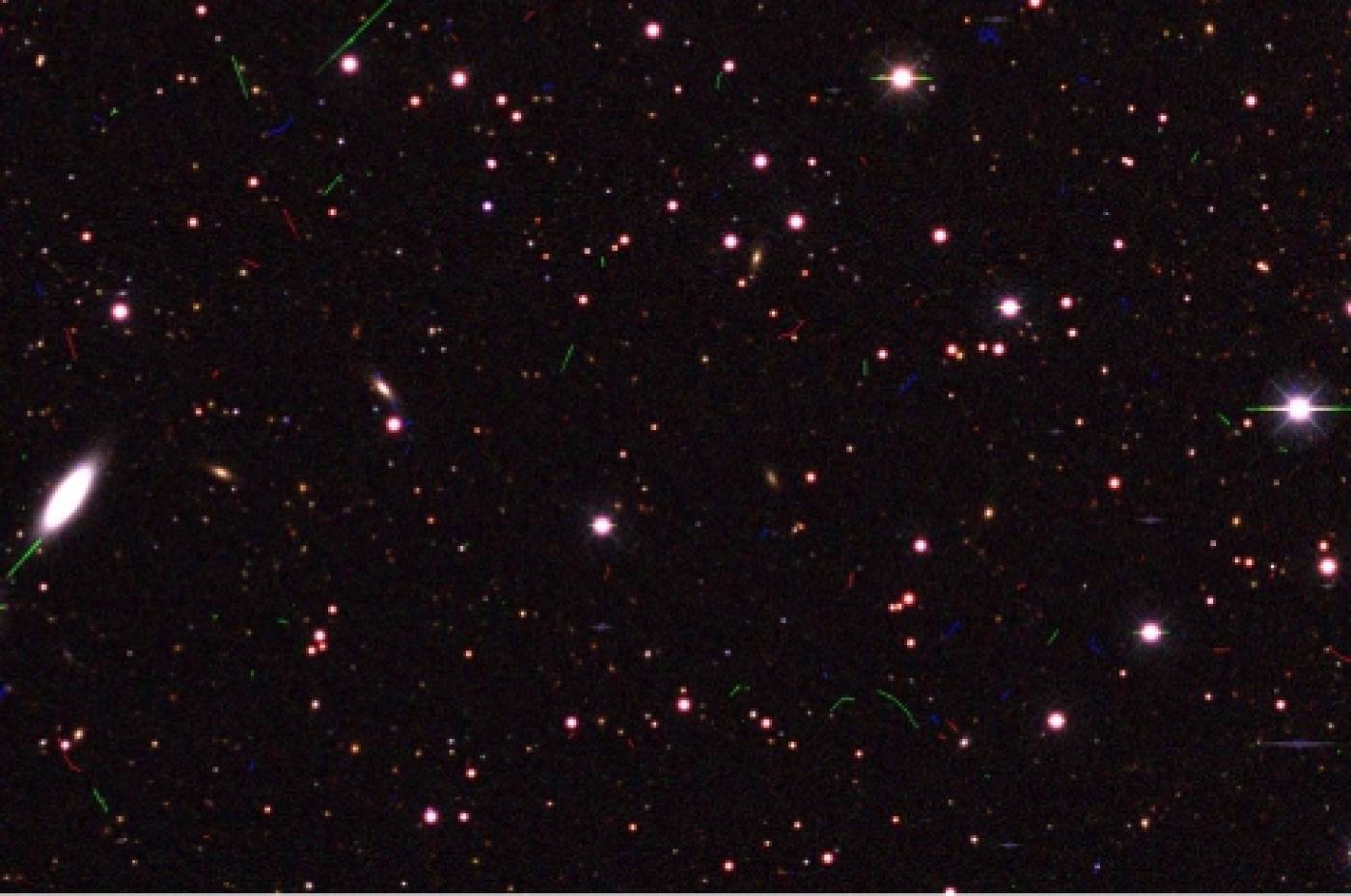
An example of a colour composite image after image reduction in the DC6B release of the DES mock image simulations. These constitute the most advanced mock images of the night sky and include a host of observational effects including lens distortions, atmospheric aberration and CCD read-out noise. Credit: Dr C. Sabiu

Full Dark Energy Camera image of the Fornax cluster of galaxies. The prominent galaxy in the lower right of the image is the barred spiral galaxy NGC 1365. Credit: The DES Collaboration
 Close
Close

